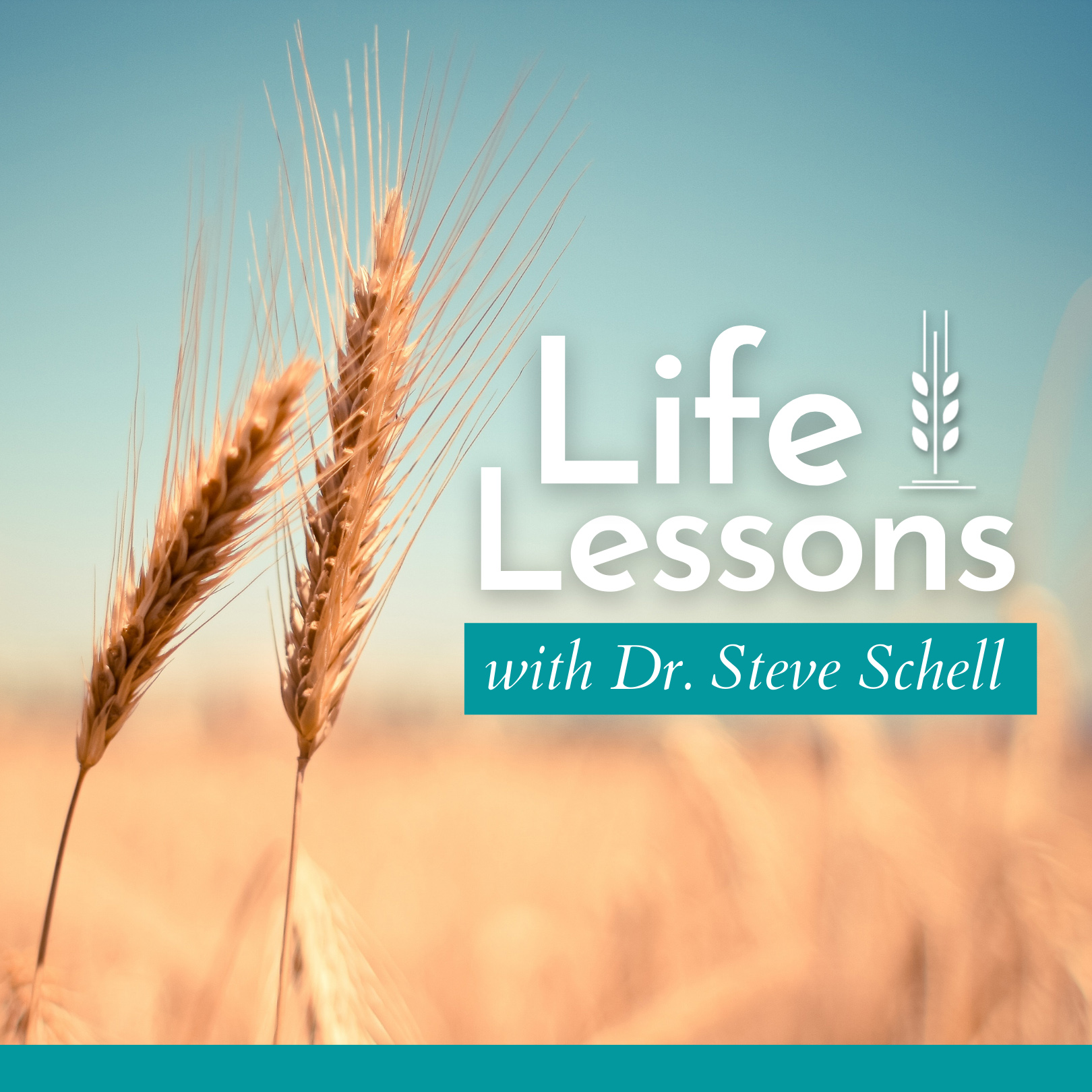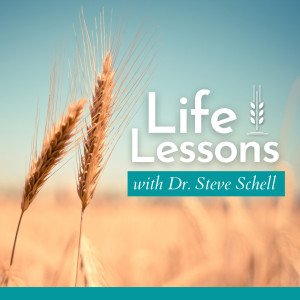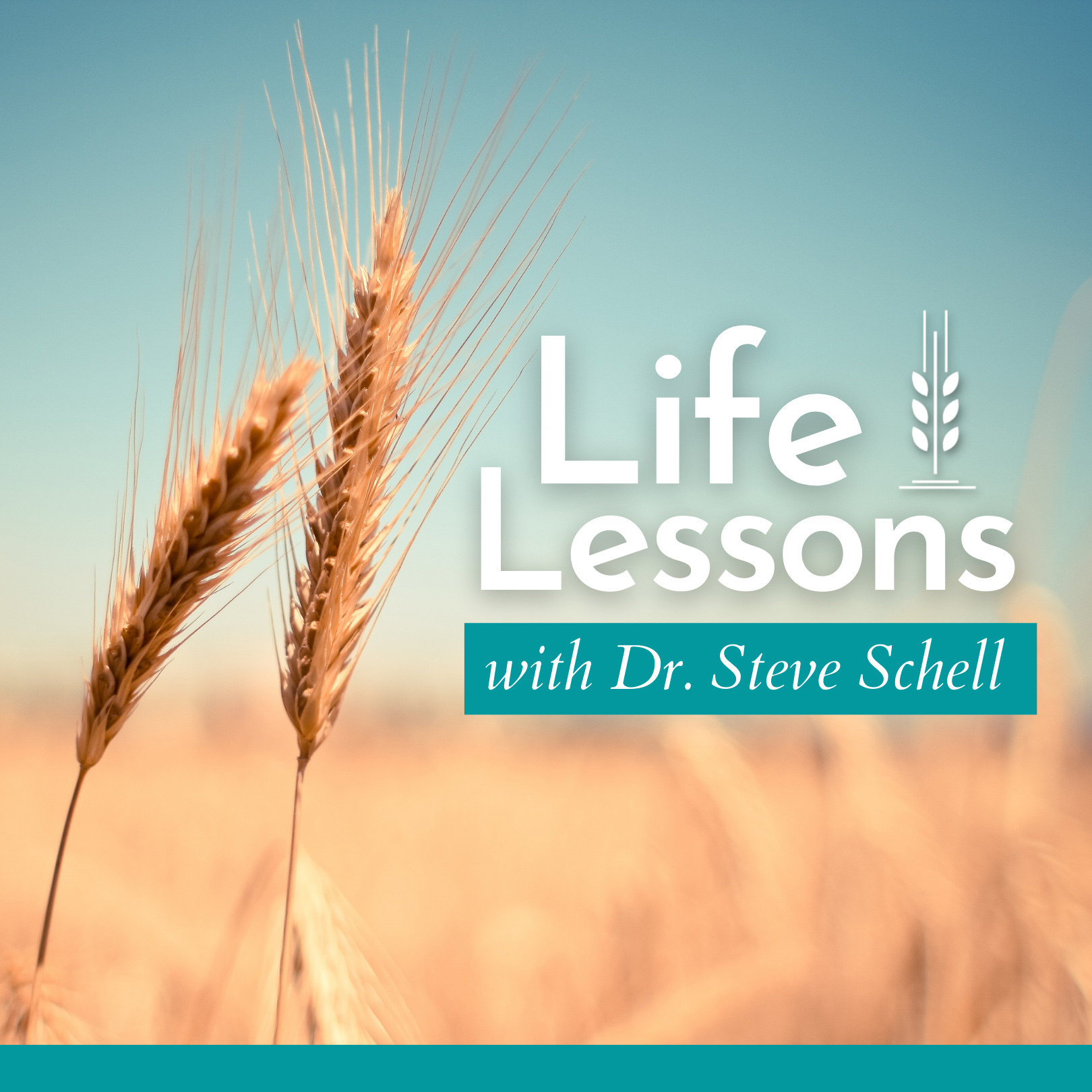
148.7K
Downloads
502
Episodes
Pastor Steve Schell comprehensively teaches through entire books of the Bible pulling out the deep, eternal truths in each section of Scripture without skipping over challenging passages. These sermons will help foster true discipleship for the committed Christian, both young and old.
Pastor Steve Schell comprehensively teaches through entire books of the Bible pulling out the deep, eternal truths in each section of Scripture without skipping over challenging passages. These sermons will help foster true discipleship for the committed Christian, both young and old.
Episodes

Monday May 01, 2023
26 - The Jethro Principle
Monday May 01, 2023
Monday May 01, 2023
The kingdom of God is all about bringing lost people back to the God who loves them. Those of us who love God know this about Him: He’s always reaching out to save more people and wants us to help Him do it. And to Him it’s always an urgent matter because He sees the eternal destiny of people. To be successful He needs to be constantly producing spiritual leaders because without enough leaders His kingdom can’t keep growing (Lk 10:2). In today’s lesson we watch as God teaches Moses how to prepare for the explosive growth of the nation of Israel. They would certainly grow by producing more children, but God hoped they would also grow by evangelism. His plans for them were that they would become a “kingdom of priests and a holy nation” (19:6) proclaiming the true God to a world that worshipped idols. The principles Jethro taught Moses still work today and if we have God’s expansive heart in us we need to learn these practical lessons and make a serious choice to let God turn us into leaders who will care for the multitudes He wants to save.

Thursday Apr 27, 2023
25 - Never Fight Alone
Thursday Apr 27, 2023
Thursday Apr 27, 2023
No sooner had rivers of water flowed out of the rock at Rephidim than Israel experienced a vicious, unprovoked attack. The Amalekites were distant relatives (Ge 36:12) and therefore should have welcomed the news that Jacob’s descendants had been freed from slavery in Egypt, but instead they sent an army to attack when Israel was “faint and weary” (Dt 25:18). In fact, the Amalekite soldiers deliberately targeted the young, elderly and infirm who walked slowly at the end of the procession. They showed neither mercy for their weakness nor a fear of God who visibly preceded the nation in the cloud and fire, slashing through the stragglers like sharks through a school of fish. When darkness fell, Moses had a chance to regroup and develop a battle strategy. He knew they would be hopelessly overpowered without God’s intervention. So instead of leading his men in battle Moses gave that job to Joshua and committed himself to fight in prayer. And the picture of him standing on that hilltop with his hands in the air from morning till night has inspired believers to fervent prayer ever since. His example at Rephidim teaches us important lessons about how to win when we fight spiritual battles.

Monday Apr 24, 2023
24 - Living Water
Monday Apr 24, 2023
Monday Apr 24, 2023
Jesus Christ did not simply die to forgive our sins. If that were all He did we would still have a wonderful gift for which we would be eternally grateful. But when we believe in Him we also receive another gift. It is the gift of the Holy Spirit who, because we have been made holy by our faith in Jesus, can join Himself to us forever. Not only are Christians forgiven but we are also filled and that makes the good news of the gospel even better. Jesus gives dry, thirsty people “rivers of living water” meaning we have an unlimited supply of God’s presence always available to us. All we need to do is ask in prayer and He will refresh us with His Spirit.
Throughout Israel’s history God ordered certain events so they would prophetically point to the ministry of Jesus Christ. By doing this He was preparing their hearts and minds to recognize their Messiah when He came. The Rock which poured out rivers of water at Rephidim was one of these events. It is a powerful illustration of the crucifixion of our Lord. But it also challenges us to remember the other gift Jesus has given us—the Holy Spirit whose limitless presence in us opens the door to a brand new life.

Thursday Apr 20, 2023
23 - Our Daily Bread
Thursday Apr 20, 2023
Thursday Apr 20, 2023
Using “manna” the Lord taught Israel to depend on Him daily and commune with Him once a week. We no longer get up in the morning to go out looking for manna on the ground, but the spiritual principles modeled in this event should still guide us in our walk with God. In fact, I believe Jesus deliberately drew our attention to the manna when He taught us to pray, “give us this day our daily bread” (Mt 6:11). He wanted His followers to learn to depend on God daily just like Israel did. Today we’ll look at these simple concepts and try to understand why we Christians need “daily bread” as much as those in the Exodus.

Monday Apr 17, 2023
22 - Jehovah Rapha
Monday Apr 17, 2023
Monday Apr 17, 2023
Most people have no problem theorizing that God is powerful enough to help them if He wants to, but if asked the question, “Does He want to?” their answer is far less confident. Either they aren’t sure whether God wants to help them or not, or they may admit they actually suspect He may be the One who brought the problem upon them in the first place. So when it comes to asking for help, many people are unsure of whether they can expect His help or not. But when we’re sick or in trouble there’s no one we want on our side more than God. So if there were a way to be sure He wanted to heal us or help us that would be one of the most helpful truths we could know. It would encourage us to be bold in our prayers and full of faith. We would be certain He wanted to do miracles on our behalf.
At a place called Marah, God turned a poisonous pond into a pool of fresh water. He told Moses to throw a tree into the pond and instantly its waters became fresh. He did it this way so the entire nation could observe how easy it was for Him to help when they had a need. Then He made a promise to them. He said if they would live by certain guidelines, they would never again have to ask whether He wanted to help or heal them. They would always know the answer. Since those guidelines still work today let’s learn what we must do to know Him as “Jehovah Rapha.”

Thursday Apr 13, 2023
21 - The Bread of Life
Thursday Apr 13, 2023
Thursday Apr 13, 2023
The next day, after Jesus fed about 15,000 people with five barley loaves and two fish, a crowd of people found Him and tried to convince Him to again miraculously provide them with bread. He refused, but picked up on their reference to the manna in the wilderness (vs 31–33) explaining that they had not understood the real message in the miracle of the manna. The real message was that God would someday provide a bread that they would only have to eat once and would keep them alive forever. Still not understanding, they begged Jesus to give them that bread and He immediately granted them what they asked for. He said, “I am the bread of life who will fulfill your spiritual hunger and nourish you so you’ll never die.” Sadly most who heard Him say these words argued against His claims and walked away (v 66). But today He still offers Himself just as surely as He did 2,000 years ago. And if the Father is drawing us, we can behold the Son, believe in Him and choose to be one with Him forever. Those who do, quickly discover He is always with them (v 56) and have peace in knowing they will never die (vs 54, 58).

Monday Apr 10, 2023
20 - The Song of Moses
Monday Apr 10, 2023
Monday Apr 10, 2023
- What is worship?
- Worship is not a means to an end—it is an end in itself.
- Westminister Confession: What is the chief end of man? To glorify God and enjoy Him forever.
- Those who know God love Him and those who love Him long to glorify Him.
- It is impossible to be in His presence and not change. We either draw near and listen or harden ourselves and pull away.
- “In His image”: one person with another (conversation; submission; correction; love; spiritual transformation: refreshed, strengthened, humbled, refocused)

Thursday Apr 06, 2023
19 - Grumbling
Thursday Apr 06, 2023
Thursday Apr 06, 2023
How is it possible that only three days after a miracle of the magnitude of parting the Red Sea that people could fear they would die of thirst? And then only a few days after God turned a briny pond into a pool of fresh water they could angrily complain “…you have brought us out into this wilderness to kill this whole assembly with hunger” (16:3). As we read these accounts the most amazing part isn’t the miracles but the doubt that persisted in the hearts of those who saw those miracles with their own eyes. It’s completely illogical that a person would see a miracle of that magnitude and then three days later assume God intended to let them die of thirst. We must be dealing with something more than doubts about God’s power. No one in their right mind could doubt His power after what they’d seen. So there had to be deeper issues in their hearts that caused them to grumble. There had to be attitudes that blinded them to the obvious spiritual message contained in these miracles. In our lesson for today we’ll try to identify some of these attitudes so we can avoid them or repent where they have crept in. As Jesus’ disciples we too will face hardship and testing, yet Israel’s example can help us avoid making the same mistakes.

Monday Apr 03, 2023
18 - The Eastern Shore
Monday Apr 03, 2023
Monday Apr 03, 2023
On the western shore of the Red Sea Israel could still be considered a band of runaway slaves. It’s true Egypt had “driven them out” to prevent any more plagues, but their army remained powerful enough to recapture their former slaves and bring them back to Egypt in chains. On that side of the sea, Israel’s freedom depended on Egypt’s good will, which of course didn’t last long. But on the eastern shore everything changed. Here Israel was at last totally free from their old bondage. With the dead bodies of their attackers washing up at their feet, the new nation stood looking out across an ocean they had just walked through and were filled with awe and faith. They were now a free people headed toward a beautiful land God had promised would be their home. As we read the account of the Exodus we discover God wants to teach us important lessons about the Christian life. The experiences of Israel illustrate many truths about how we are to walk with God. Today we’ll focus on the fact that in Christ we too stand on the eastern shore of the Red Sea. Like Israel we too are free from the powers that once held us in bondage (Eph 2:1–6). And we are also similar to Israel in that along with this new freedom have come new responsibilities.

Thursday Mar 30, 2023
17 - The Cloud and Fire
Thursday Mar 30, 2023
Thursday Mar 30, 2023
You’ll notice God didn’t give Israel a map of the wilderness and say, “I’ll meet you again when you get to Mt. Sinai.” He personally led them day-by-day: 1) He protected them: revealing hidden things that would cause them to stumble; 2) He sheltered them: shading them from the glare of the scorching sun; 3) He guided them: leading them with direction and purpose; 4) He comforted them: showing them a sign of His presence day and night.
Today the Lord still takes us into the wilderness where we face trials, just as He did with Israel. He still wants to use such events to build our faith. He wants to teach us to overcome them by drawing on His constantly available power. And so, as He did with Israel He doesn’t send us into the wilderness alone, but personally goes with us. We too are given the cloud and the fire.
